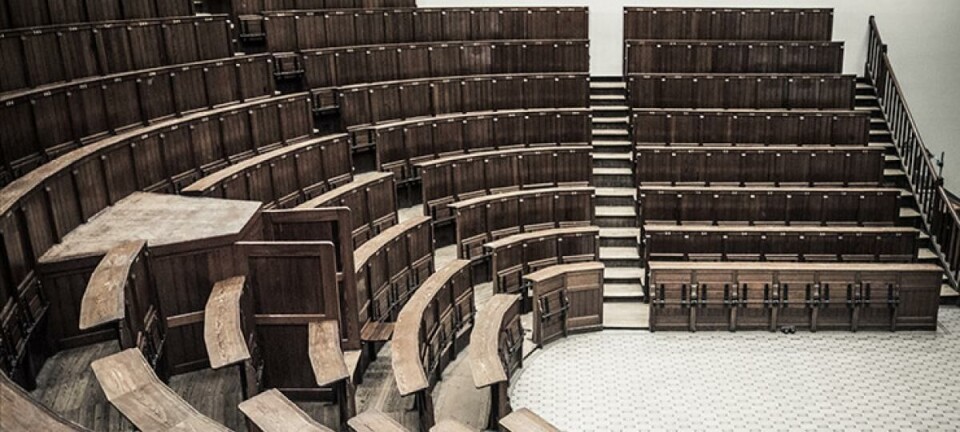article> Leuven Life
Only Skype and web lectures if Corona gets too bad

Digital teaching methods would become lifeline of university in case of (partial) lockdown
Originally written in Dutch for Veto by Tijs Keukeleire
Translated to English for The Voice by Gwynne van Kaauwen (Contributing Writer)
Originally published on March 6, 2020
The Corona virus can force campuses or faculties to lock down - or perhaps even the entire university. Digital teaching methods would then take over the education, according to vice rector Piet Desmet.
The action plan education concerning suspension of classes includes three phases. Right now phase 1 is active, according to vice rector Piet Desmet; the university is putting the digital solutions in place and is prepared. Phase 2 starts when a few parts of the university are in lock down and a part of the students have to stay home. During phase 3 face-to-face instruction comes to an halt for the entirety of KU Leuven.
The evolution between the phases is determined by the coordination team of the university and is closely aligned with the rector and the responsible vice rectors. The coordination team remains in touch with the Flamish Agency of Healthcare (VAZG).
Once a student or teacher is diagnosed, the Agency examines who has been in contact with the infected person. Dependent on various parameters (e.g. the time span and the intensity of the contact) the Agency decides if and which additional measures are necessary. The coordination team informs the involved target groups as fast as possible.
From then on a lot is possible; perhaps only gatherings in big auditoria will be suspended, maybe only those from a specific faculty or one of the fourteen campuses. This also depends on the response of the government - in Italy the closure of all educational institutions was determined by the government.
Skype for Business
During phase 2, when certain lectures would be suspended, teachers can still go to the auditorium and stream themselves and the lectures without a public. Students would then watch from home. If the infection is only based in one campus, conferencing to an auditorium at another campus would also be a possibility.
In phase 3 there wouldn’t be any classes at the university - like the situation in Italy - and the teacher would record the lecture at home, according to vice rector Desmet. The teacher will either upload the web lecture to Toledo right away, or the lecture will first be broadcasted live through Skype for Business.
The last solution would not be available for the biggest auditoria - the software allows at most 250 call ins at the same time. Interaction isn’t possible through Skype itself, but it can be achieved through tools such as Poll Everywhere or Toledo fora.





